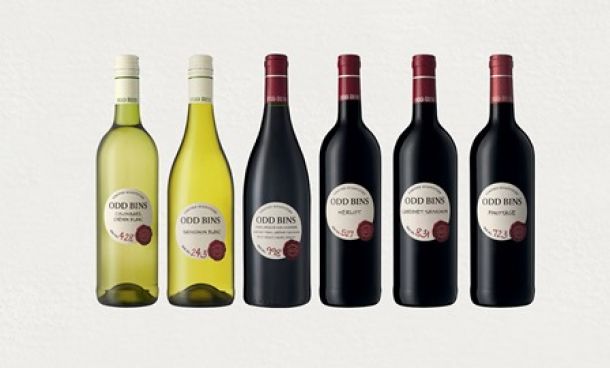New liquor law’s 500m rule will make most licensed township taverns illegal
The DTI’s national liquor policy (NLP), open for comment until August 13, proposes that liquor premises be located at least 500m away from schools, places of worship, recreation and entertainment facilities, which means nowhere near a cinema (i.e. a shopping centre), casino or stadium, for instance), rehabilitation or treatment centres, residential areas and public institutions.
The proposal would presumably apply to both off (bottle stores) and on-consumption (restaurants, hotels, casinos, pubs, taverns and clubs). No liquor licences shall be issued to premises attached to petrol service stations, premises near public transport, and areas not classified for entertainment or zoned* by municipalities for purposes of trading in liquor.
Gus Ntlokwana owner of Duma’s Falling Leaves shebeen in Langa, Cape Town’s oldest township, said, “This law is going backwards. It is a reminder of the past and shebeens are a soft target. Instead of encouraging us, they are against us. Today the government says we must do things for ourselves but their laws prevent us.”
Leon Louw, executive director of the Free Market Foundation (FMF) said, “Not only is this ill-considered, unjust, inconvenient, and unfair to the poor, but this provision is biased toward wealthy elite people living in spacious neighbourhoods. Introducing such a rule in low-income and high-density areas echoes apartheid discrimination against mainly disadvantaged blacks. These proposals are unjustifiably disproportionate.”
“It would drive most retail licensees out of business, particularly where no or insufficient premises are zoned for entertainment or liquor trading or are far from customers. Relocating pubs and taverns far from public transport so patrons have to drive there and back would increase the incidence of drunk driving.”
The proposals also provide that if a licence is already issued, it would be terminated within two years. If this were implemented, with it would go against myriad small businesses and entrepreneurial stalls that set up shop next to taverns and shebeens precisely because this is where their customers are. Owners and staff would lose their livelihoods.
A trip into any local township, especially on a Saturday afternoon, immediately brings home the absurdity of the proposed 500m rule. The 7 Stars Tavern, one of Langa’s oldest and best known, will have to close within two years under the 500m rule because it is a few metres away from the taxi rank and a herbal treatment facility.
The impact will be felt not just in the townships, although they will be hardest hit, but all over South Africa where liquor premises exist side by side with other shops, schools, churches and residential properties, and near or in such transport facilities as bus routes, airports and railway stations.
People want to enjoy all aspects of life conveniently. They do not want to have to travel far just to get a drink outside of the home. Within Sandton City, there is a Muslim place of worship. Such a provision would make all alcohol sales in restaurants and hotel bars within half a kilometre of this prestigious shopping centre illegal.
If a hotel has a chapel, the hotel would be forbidden to sell liquor. A hotel situated near a church would not be allowed to serve alcohol via room service or even stock the hotel room minibars with alcohol.
“It is not clear why there should be no liquor retail outlets within half a kilometre of a place of worship. Are worshippers especially prone to alcohol abuse?” Louw asked, “Will it affect the use of sacramental wine in Catholic churches?”
“This proposal is impractical to the point of craziness. It would turn many forms of normal, legal behaviour into criminal behaviour.”
The inevitable consequence of such a measure is that people will drink far from their homes. Resurrecting apartheid’s “radius law” in this way means that only middle- and high-income people with private transport will be in easy reach of liquor outlets. Preventing poorer people from buying liquor near public transport will require them to walk or cycle after drinking. Mugging, rape, and alcohol-related incidents will increase.
The list includes “areas not classified for entertainment or zoned by municipalities for purposes of trading in liquor”. To this day, most townships have no properties zoned for business purposes. Consent use is difficult and expensive to get. To require zoning in black communities should not be considered until all historically black cities have proper town-planning schemes with enough property zoned for business purposes to serve all community needs.
The law should leave the policing services to focus on people committing criminal acts regardless of whether they are intoxicated or where they became so.
The NLP talks about “education and awareness” which the FMF fully supports as the way forward for a free and open society with human dignity and personal responsibility. Instead, as with banning smoking in public places and other draconian measures against tobacco use, the government is removing freedoms by stealth in the guise of safeguarding the nation’s health. Once lost, individual freedoms cannot easily be regained. These proposals need to be resisted before more freedoms are taken away while the nation sleepwalks into the nanny state.
*NOTE: There is no such thing as "liquor" zoning, or "classification" for entertainment, only general business, on which premises a liquor licence is required.
News Category
- International retailers
- On the move
- Awards and achievements
- Legislation
- Wine and liquor
- Africa
- Going green
- Supplier news
- Research tools
- Retailer trading results
- Supply chain
- Innovation and technology
- Economic factors
- Crime and security
- Store Openings
- Marketing and Promotions
- Social Responsibility
- Brand Press Office
Related Articles

Makro secures exclusive rights to SA’s most sou...

Checkers adds 41 new wines to Odd Bins range

With petrol at almost R20 a litre, food prices ...

Petrol price shocker for South Africa


